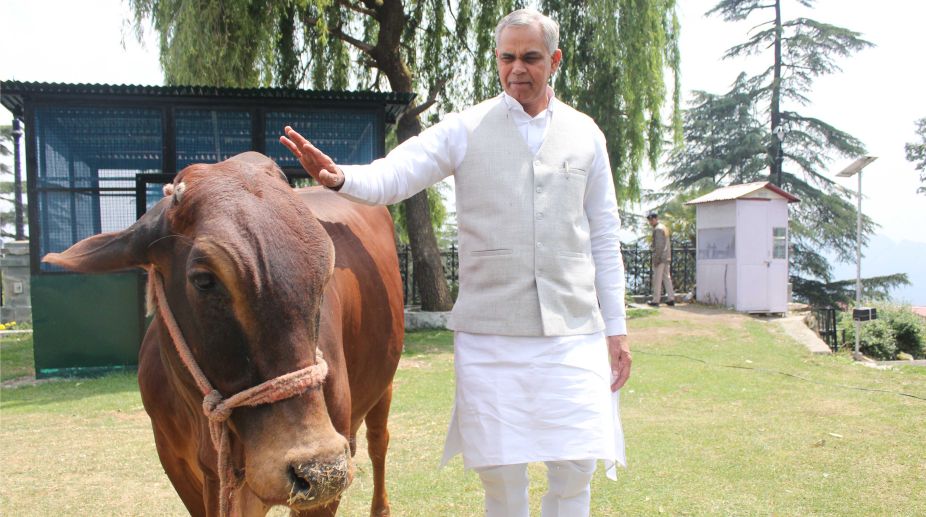The Himachal Pradesh government is keen on reverting back to ‘desi’ cows for natural farming.
The government has kept provision of half subsidy on purchase of ‘desi’ cows in the budget and has initiated a special project on Zero Budget Natural Farming, which revolves around indigenous cattle with no use of chemical fertilizers or pesticides.
Advertisement
An HAS (Himachal Administrative Officer) has recently been designated as state project director, zero budget natural farming, in agriculture department to take the agenda forward.
Official sources said the Cabinet will shortly sanction the number of posts, which may include a veterinarian, to be kept for this special project to spread the concept among farmers in phased manner.
“As soon as we get the staff, we will go for practical training and awareness in field. We will target organic farmers first and then others. In organic farming, bio-fertlisers and bio-pesticides are used, but zero budget natural farming is purely dependent on cow. The farmers will be encouraged to buy ‘desi’ cows depending on their farm size,” State Project Director, Naresh Thakur told The Statesman.
He said the switch over to the zero budget natural farming does not drop the productivity.
Himachal Pradesh, which has 90 per cent of the population living in rural areas, is primarily agriculture and horticulture state. Leaving apple growers aside, who earn good income from the fruit crop, most agriculturists in Himachal are small and marginal with subsistence farming.
Barring Chamba and few other interior parts of Himachal, the farmers have usually switched to hybrid cattle breeds as the focus of the agriculture department too had been on economic viability.
Official sources said that the state government’s move on zero budget natural farming was driven by HP Governor Acharya Devvrat’s keenness to promote the concept, since he came here, verbally as well as through a book.
Devvrat has been sharing his experiences of successful zero budget natural farming on 200 acres farm in Gurukul, Kurukshetra, which he headed earlier, referring to ‘desi cow’ as the basis of sustainable agriculture without incurring any expenditure.
The cow dung and urine of one local cow could be helpful in farming 30 acres of land, besides improving fertility of the soil, achieving maximum yield by using minimum water and ensuring remunerative price of their product, according to him.
As Chancellor of Chaudhary Sarwan Kumar Himachal Pradesh Krishi Vishvavidyalaya, Palampur and Dr Y S Parmar University of Horticulture and Forestry, Solan, he has been constantly telling scientists to shift to zero budget farming in the interest of health of future generations.
The practice is also tipped as a solution to check tendency of abandoning cattle after the animal stops giving milk.
Agriculture and veterinary experts, however, are still apprehensive of the project as they say that it requires a lot of research for economic viability before it is propagated among farmers in the hill state.











